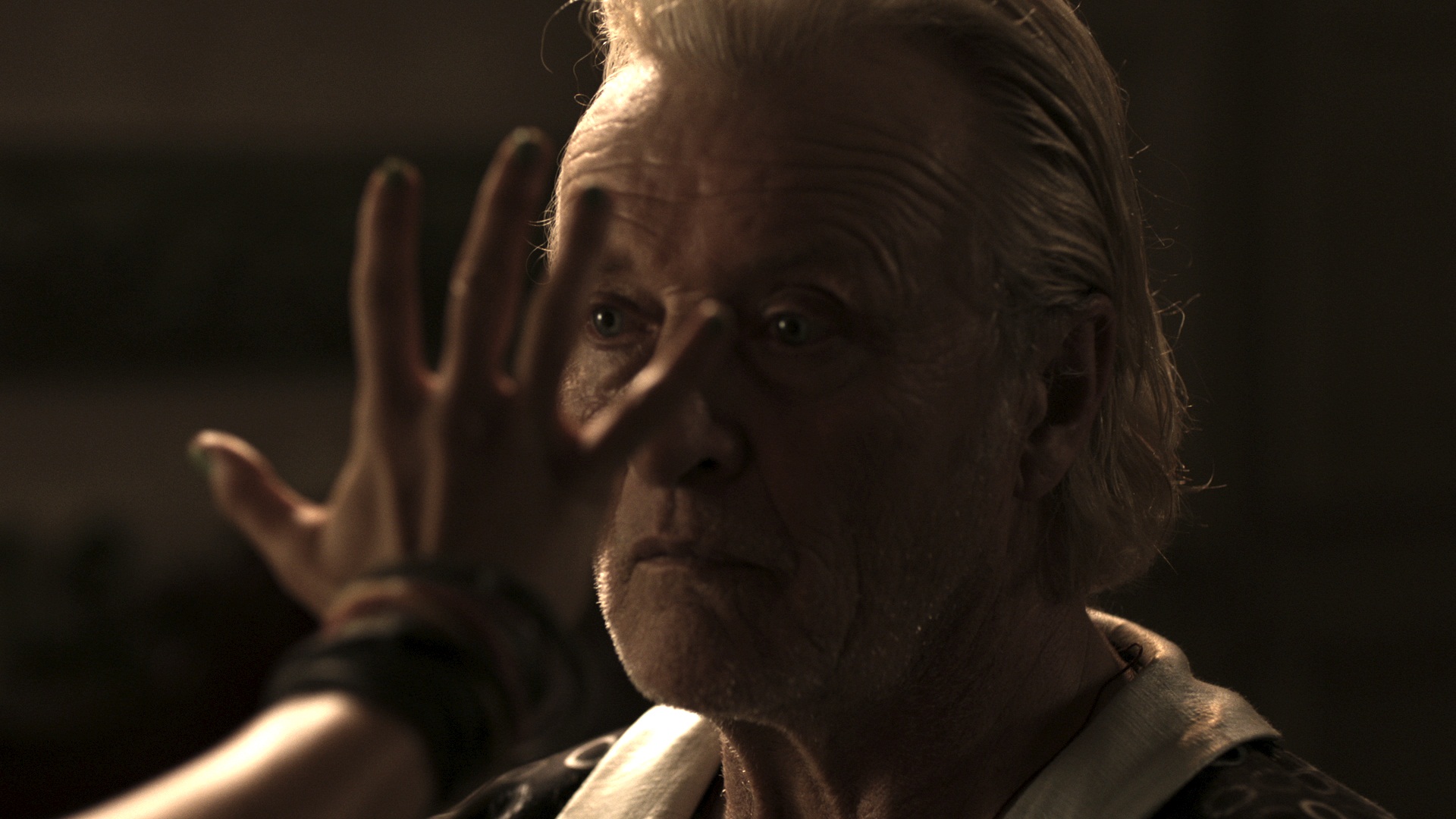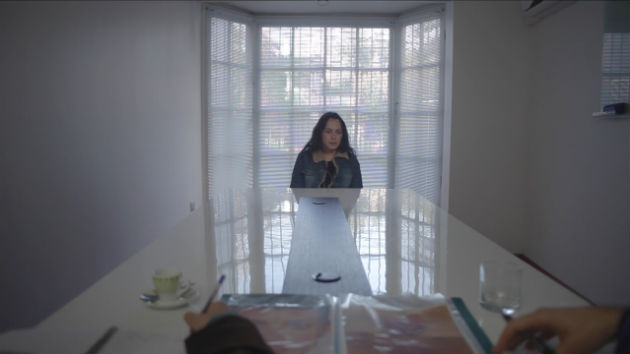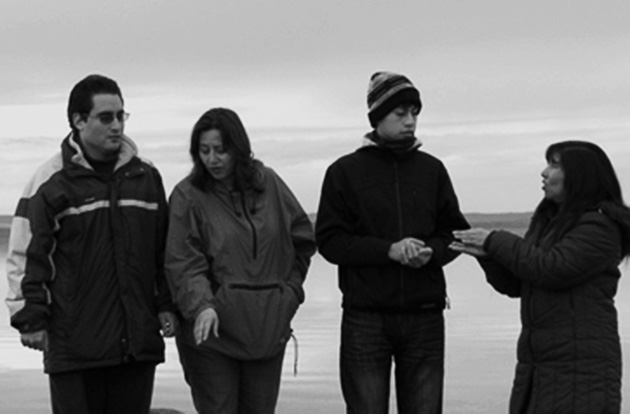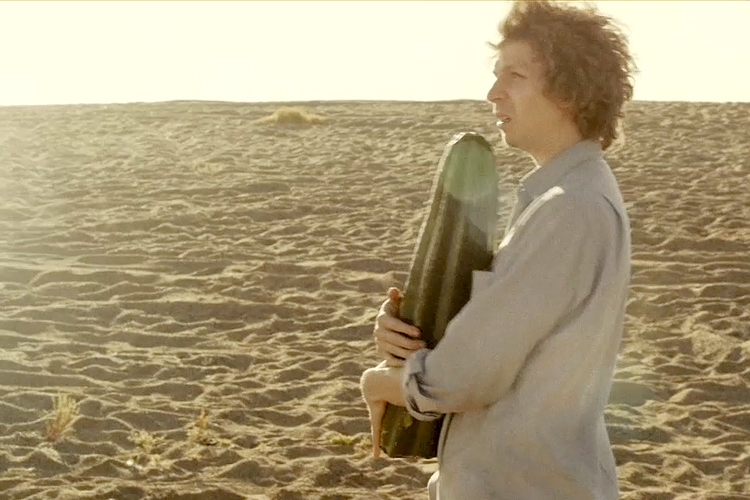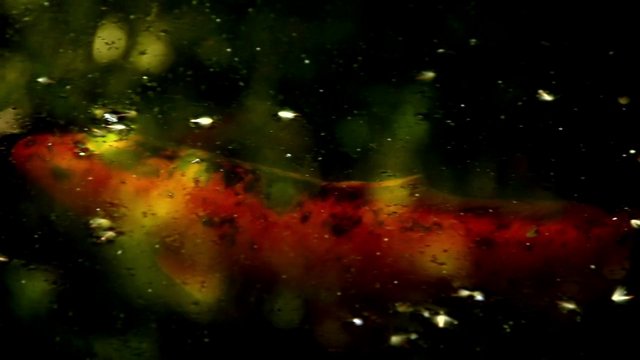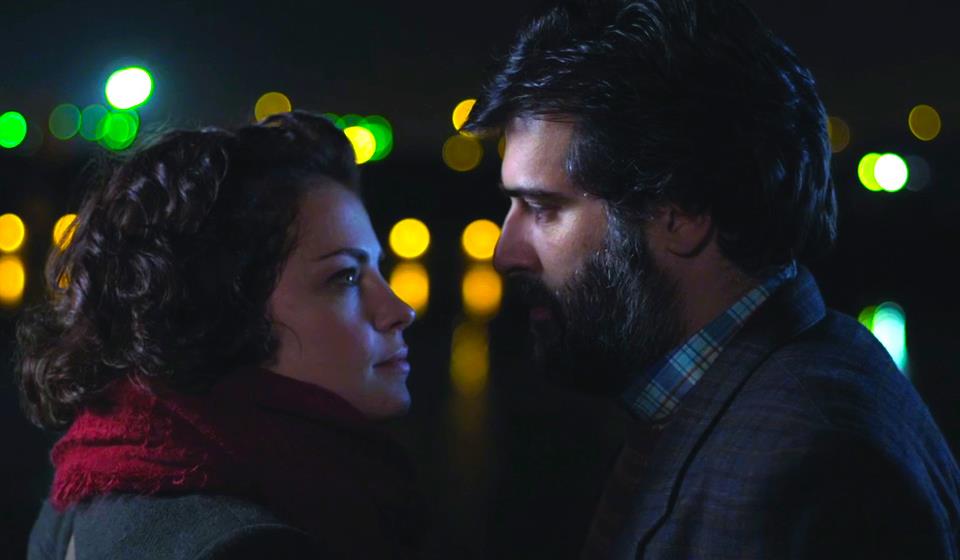10 Best Chilean Films of 2013 Chosen By Jaime Grijalba
These have been some pretty hectic years for Chilean cinema. They've been recogniced internationally, had the biggest box office hits inside the country, and it even got a lot of attention when it got its first Oscar nomination in all of its history. And even while No had a theatrical international release in 2013, it's a 2012 movie that played in Chilean theaters in August 2012. So, this list of 10 movies (not ranked, but the first five are the best five of the bunch) are my favorite and best Chilean films that premiered in 2013 either on theaters or festivals. Here's the future of cinema, I hope.










Il futuro The Future (Alicia Scherson)
This chilean-italian-german co-production played at Sundance and got a nice share of good reviews, even achieving some deals for an international release in Europe and the United States, it was an out and all success for one of the most famous and critically acclaimed female directors in Chile, Alicia Scherson, whose other films like ‘Play’ (2005) and ‘Turistas’ (2009) were also acclaimed in festivals from around the world, achieving it through a minimalistic approach towards its situations and female centered human relations of films. Here she continues the exploration of the female persona sorrounded by the male gaze, how the protagonist is inserted into a strange yet at the same time familiar world that is constantly shifting either due to the characters that she meets or the events that go around her. Alicia Scherson has managed to become a distinguished auteur and there’s no wonder that the doubt from the international investors was minimal when it came to support what would be the first adaptation of the written word of the chilean born writer Roberto Bolaño to the big screen, using one of his minor works, here the film manages to become large due to the way in which the female body and power of its protagonist (Bianca) manages to change and move the things around her, only using the elements of her own sexual desire and skill, as well as her will to overcome those who try to put her foot over her choices or ways of seeing the world and relations.
Based on the novel ‘Una novelita lumpen’ by Roberto Bolaño, this movie follows two brothers (Bianca and Tomas) whose parents (chilean descendants living in Rome) just died in a fatal car accident, and how their life quickly starts to become more and more otherworldly, as they start to confront how they’ll survive alone, specially when it seems that the light of day that sorrounds them seems brighter and even shines when it’s dark. They also start to grow up and mature, sorrounded by the modern life of Italy, where she starts to think of working on something to sustain them and her brother starts to work at a local gym and move around with the wrong kind of folk: criminal jocks that just want to take every oportunity available to get easy money. Those jocks slowly but surely start to invade the apartment in which Bianca and her brother live in, and they slowly start to control the life and the direction in which they seem to live their lives, until the opportunity appears: they tell Bianca about an old retired actor, Maciste, who lives in Rome and has a treasure… she might be able to retrieve it as he is blind, and may use her visits as a prostitute as a way to inspect the mansion in which he lives. But at the same time she can’t avoid the fact that while she has been exploring her body in the sexual and living ways, she also at the same time can’t avoid starting feeling some things regarding the people she touches, specially regarding her ultimate goal.
This is among my favorite films of the year, and it’s a true discovery to find the powerful performances and the amazing cinematography present in the whole film, specially coming from Manuela Martelli, an actress that I’ve never been fond of in her entire career (either in cinema or out of it), and the presence of Rutger Hauer in the cast just make it steller, as if this was (and at some times it feels like) a super blockbuster production. It’s always entertaining and mesmerizing to watch, and when the plot finally goes towards its final stretch, it’s finally emotional and incredible, this is one of the chilean films to look to when we are watching what we actually do and how we can do it to give a better image of our directors and actors, and while the whole film is spoken in italian and only about 3 minutes of the film were actually shot on Chile, you can feel the presence and the strength of a new generation of directors who want the best… this is among the best examples of the year so far.
Naomi Campbel (Nicolás Videla, Camila José Donoso)
One of the best debuts of the year. I wrote a review for ScreenAnarchy and you can read it here.
Ver y escuchar See and Listen (José Luis Torres Leiva)
The best Chilean documentary of the year! Full of poignant moments and emotion. I wrote a review for ScreenAnarchy and you can read it here.
Soy mucho mejor que vos So Much Better Than You (Che Sandoval)
Premiered in some festivals this year, including BAFICI and SANFIC, where it received some praise. This is a sequel to the first film of Che Sandoval You think you're the prettiest... but you're the sluttiest, where this movie follows another schmuck that recently got into a fight with his son and wife, and goes on a nocturn trip through Santiago, the capital of Chile, just to find sex from anyone, only to find dissapointment and his own coward nature. It's an experience to see how serious this movie turns when it moves away from its comedic roots.
Crystal Fairy (Sebastián Silva)
The best of the two films that Silva shown and released this year, the other being the dissapointing yet gorgeous and well performed Magic Magic. This one goes on a much simpler route, being more improvised than anything and at the same time it manages so much more because of that. A trandescendent story about addiction and friendships that go south, how to treat and be treated, it's like a treatise on friendship and civility by showing you all the bad examples, it's truly one of the strangest films in this year when it comes to Chilean cinema.
Gloria (Sebastián Lelio)
Gloria is a mature woman, she is divorced and lives alone in a department, from where she drives to work every day, humming or singing along the old songs that the radio spurts out. Every other night she goes out to senior clubs, where people of certain age can come together and dance to the songs of yesteryear, have a drink and meet up, it’s a classic here in Chile how certain pubs and discos put certain nights away as “classic” or “senior” nights, when they just want to say that they are putting old music and inviting all the old people to go and meet up, hook up or whatever happens. It is one of these nights that Gloria finds an interesting man, he is the owner of an extreme park where you can jump on bungee, do some paintball and other activities related, yet he is also a lonely man, divorced just as Gloria, who is also looking for something different in his life, and that’s how our movie starts to move… or not… Well, here’s the main problem I have with this film: it has an interesting premise with this couple that seems to be boiling, the man is strange as he disappears at critical moments in their life as a couple, he leaves the birthday party of one of her sons, and he also seems desperate to bring her back, just so we know again that he doesn’t seem to be able to dettach himself from his former wife and her two grown-up daughters, and that chemistry presented there is amazing and so so interesting, specially in the ways that is performed by the two leads. But then becomes clear the ‘theses’ of the film, where the director has said many times that Gloria is some sort of ‘supporting character in the lives of others’, and here’s where the main story dilutes in the midst of other ‘not-as-interesting’ plot points that most of the time aren’t fully resolved nor thought out in a narrative manner.
Variaciones espectrales (Spectral Variations) (Carlos Lertora)
One of the most interesting musical documentaries made in Chile. i wrote about it here.
El crítico The Critic (Hernán Guerschuny)
This is an Argentinian/Chilean production, but it counts to me. There is an ambivalence in this film that is followed all the way through. There are moments that make it describable as a comedy and the next moment there are scenes of heavy and serious drama, all of them mixed up and narrated by our protagonist in a deep french voice (who says that voice overs in spanish sound pretentious), and so the film moves forward and tries again and again to compensate two worlds that are explicit in the movie as they are spelt out for the audience by our main character: the romantic comedy and the art film, those confronted early on by the figure of the niece of the critic Téllez (our protagonist) who loves the romantic comedies, while Téllez prefers the art of cinema given by Godard. And so, while that conflict still lingers in our mind, Téllez seems to have been interrupted from his life and thrown inside one of the most convincing yet still clichéd romantic comedies of the recent years. The rules are there and he knows them, yet he can’t avoid falling head over heels to the charm and (eh) beauty of the girl who owns the apartment he’s trying to rent for himself, all while he slowly reveals himself as a screenwriter using his real life musings with the woman he is meeting up with… and also, the life of the critic, which still seems to be the strongest part of the film.
¿Qué historia es esta y cuál es su final? Which story is this and how does it end? (José Luis Torres Leiva)
Another film by Leiva in this short list. This documentary, made for TV yet presented for the first time as a feature film documentary in the retrospective of the famed chilean director Ignacio Agüero, is simple in its approach, yet it manages to cast deep emotions and feelings, as well as a sense of ouvre that complies with the ones told by the director himself while revisiting his films, and by the way in which the director chooses the subjects and things in which to stop the camera at. The houses in which Agüero lived when he was making the film seems to be an obsession not only from Agüero himself, as he bases the changes of his life and the memory of the films he made through that, when a house was being reconstructed as he made his film about the demolition of houses, or how his film about how to search for the idea of a film was made around the time where he got separated and was looking for a new life. Accompanied by his latest collaborator, he goes through pictures, anecdotes and we see snippets of the documentaries that he has directed in the past. Here we see in images and through his voice his way of seeing and doing documentaries: chronicling the time of a space, of a place in the time-space and its moments, here he tell us how he has made movies about his own house (‘El otro día’ (2012) ) and ships that go empty across the ocean (‘El sueño del hielo’ (1993) película con la cual se presentó este documental), and that’s the same thing that Torres Leiva does with the space given for the documentary and the situation presented here: one space, Agüero’s house, as friendly and memorable conversations go around the table, noticing the changes in the time-space but not of the place itself, but of the characters, who are transported thanks to their conversations and the pictures that are coming out of the crate that was the gimmick chosen by the director.
Piling Up (Cristóbal Palma)
Photographer turned short filmmaker Cristóbal Palma surprised me with this short film about an abandoned town of the north of Chile, where everyone seemed to have left town in the middle of the day as they were doing their every day life. As a short project is really breath taking, but I really wished that it had a feature length, the images were stunning and made me want to contemplate more, the editing didn't make me appreciate them enough. There's a project there to be had, to turn it into one of the best contemplative films ever made, but this one didn't make it.

More about The Future (Il Futuro)
More about Naomi Campbel
More about Ver y escuchar
More about Crystal Fairy
More about Gloria
- Ariel Awards 2014: THE GOLDEN CAGE Dominates Mexican Oscars
- Review: GLORIA, A Joyful, Tragi-Comic Reminder To Keep On Truckin'
- Cineteca Nacional's 55 Muestra: BLUE IS THE WARMEST COLOR, ONLY GOD FORGIVES, BLUE JASMINE And More!
- Morelia 2013 Interview: Sebastián Lelio Talks GLORIA And Jodorowsky
- Telluride 2013 Announces Lineup: GRAVITY, JODOROWSKY'S DUNE, DRAGONS, THE TERMINAL MAN, ZAPRUDER, And More
Around the Internet
Recent Posts
Leading Voices in Global Cinema
- Peter Martin, Dallas, Texas
- Managing Editor
- Andrew Mack, Toronto, Canada
- Editor, News
- Ard Vijn, Rotterdam, The Netherlands
- Editor, Europe
- Benjamin Umstead, Los Angeles, California
- Editor, U.S.
- J Hurtado, Dallas, Texas
- Editor, U.S.
- James Marsh, Hong Kong, China
- Editor, Asia
- Michele "Izzy" Galgana, New England
- Editor, U.S.
- Ryland Aldrich, Los Angeles, California
- Editor, Festivals
- Shelagh Rowan-Legg
- Editor, Canada


